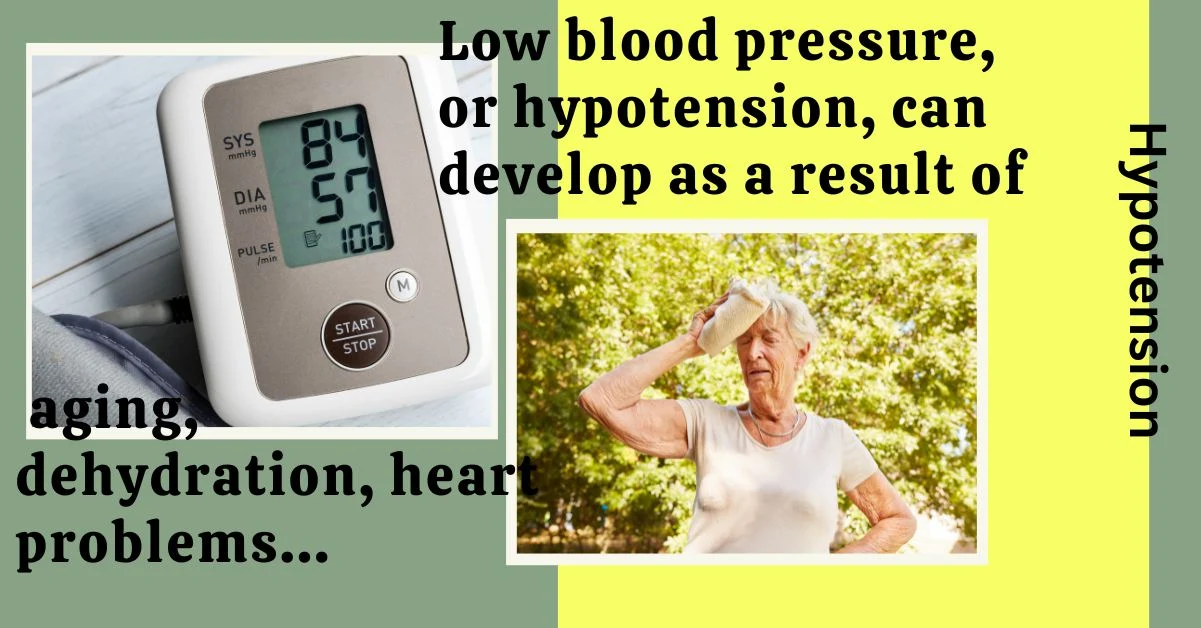How Does Low Blood Pressure Affect The Risk Of Falls In Older Adults?
Increased Fall Risk
One of the most immediate dangers of low blood pressure in older adults is the risk of falls. When blood pressure drops too low, individuals may experience dizziness or lightheadedness, especially when standing up.
This sudden decrease in blood flow to the brain can lead to fainting, making falls more likely, which can result in fractures and other serious injuries.
Fatigue and Weakness
Continually low blood pressure can lead to chronic fatigue and weakness. When the body’s organs and muscles do not receive enough blood flow, it can have a lingering impact on energy levels.
This can severely affect an older person's ability to engage in daily activities, decreasing their overall quality of life.
Cognitive Impairment
Older adults with low blood pressure may experience cognitive issues due to reduced blood flow to the brain. These can manifest as confusion, difficulty concentrating, and memory problems. Over time, chronic low blood pressure may contribute to more severe cognitive decline or exacerbate existing conditions like dementia.
Cardiovascular Problem
Although low blood pressure is sometimes considered less dangerous than high blood pressure, it can lead to cardiovascular complications. Insufficient blood flow can compromise heart function and increase the risk of heart attacks. In severe cases, consistently low blood pressure may lead to shock, a medical emergency requiring immediate attention.
Dehydration
Dehydration is another risk factor for low blood pressure, particularly in older adults. Inadequate fluid levels can contribute to lower blood pressure, creating a vicious cycle. Dehydration, in turn, can worsen other health conditions and prompt further complications. Older adults may not feel thirsty, leading them to ignore their hydration needs.
Adverse Effects of Medication
Many older adults take medications that can lower blood pressure as a side effect. This can include drugs for conditions like hypertension, heart disease, or anxiety. If not monitored closely, these medications can lead to dangerously low blood pressure levels, impacting an individual’s overall health and stability.
Impaired Organ Function
Low blood pressure can prevent vital organs from receiving sufficient blood and oxygen. Organs such as the kidneys, liver, and brain are particularly susceptible to damage when blood flow is compromised. Over time, this can lead to organ dysfunction and, in severe cases, organ failure, making management of blood pressure critical for the health of older persons.
Preventing Low Blood Pressure in Older Adults
Low blood pressure, or hypotension, can be a significant health concern for older adults. While consulting with a healthcare provider for personalized advice is essential, several lifestyle modifications and preventive measures can help manage and prevent low blood pressure.Lifestyle Modifications
Stay Hydrated:- Drink plenty of fluids: Water is the best choice, but other fluids like herbal teas and electrolyte-rich drinks can also help.
- Avoid excessive caffeine and alcohol: These can dehydrate the body and worsen low blood pressure.
- Eat a balanced diet: Include plenty of fruits, vegetables, whole grains, lean proteins, and healthy fats.
- Limit sodium intake: While sodium can help raise blood pressure, it's essential to consult a doctor before significantly changing your diet.
- Reduce intake of processed foods: These often contain high sodium and unhealthy fats.
- Engage in moderate-intensity exercise: Aim for at least 30 minutes most days.
- Start slowly and gradually increase the intensity.
- Avoid strenuous exercise, especially in hot weather: This can lead to dehydration and worsen low blood pressure.
- Practice relaxation techniques: Techniques like yoga, meditation, and deep breathing can help reduce stress and improve overall health.
- Get enough sleep: Aim for 7-8 hours of quality sleep each night.
Medical Considerations
Medication Review:- Consult with a doctor: Review all medications to identify any that may contribute to low blood pressure.
- Take medications as prescribed: Adhere to the prescribed dosage and timing.
- Schedule regular appointments: Regular check-ups can help monitor blood pressure and identify underlying health conditions.
- Get up and move around regularly: This can help prevent blood pooling in the legs.
- Elevate the head of the bed: This can help prevent blood pressure drops at night.
- Adjust clothing to the weather: This can help regulate body temperature and prevent sudden drops in blood pressure.
- Stay hydrated: Drink plenty of fluids, especially water.
- Avoid excessive heat exposure: Limit outdoor activities during the hottest parts of the day.
- Wear loose, lightweight clothing: This can help the body regulate temperature.
By following these tips and working closely with a healthcare provider, older adults can effectively manage low blood pressure and improve their overall quality of life.



.png)

